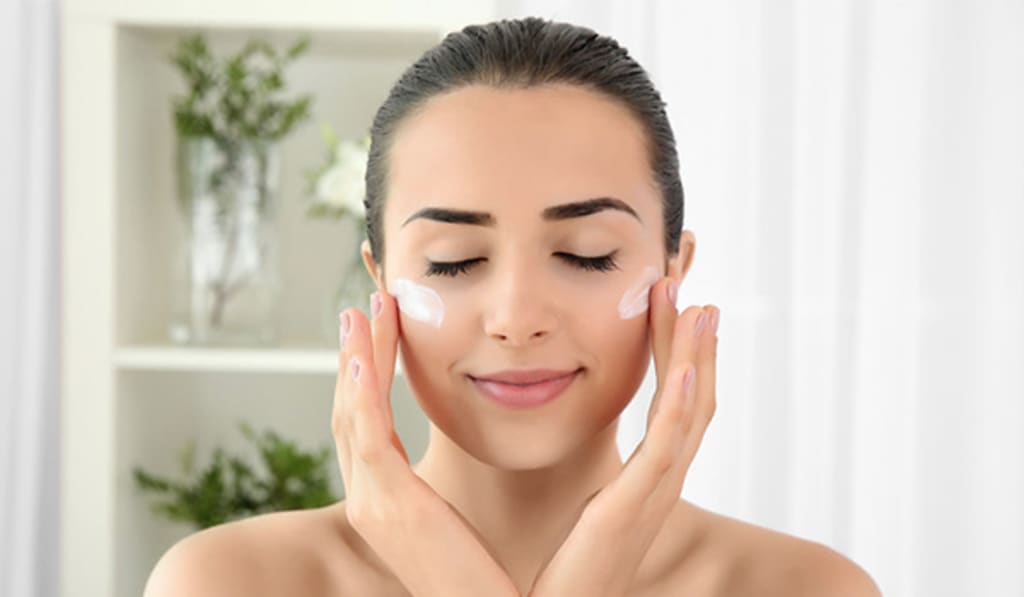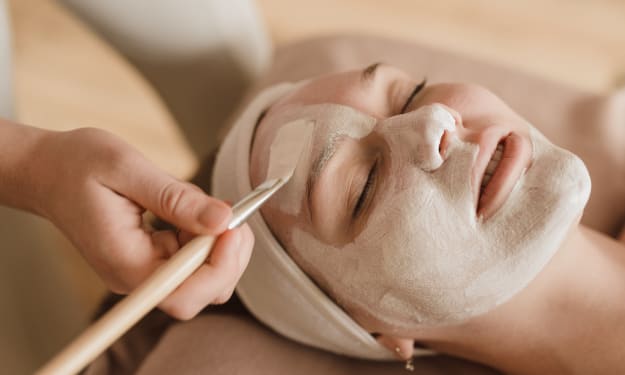Glowing from Within: The Essential Body Skin Care Routine
Nourish and Revitalize

Many individuals give the most attention to the skin all over, yet the rest of your body needs care, as well. This is the way to give it what it needs.
Dermatologists frequently say that patients come in with flawless complexions, yet below the neck, it's an alternate story.
Frequently, the skin on their bodies is so dry it seems to be alligator skin, while their faces are well moisturized. Others have dry patches on their backs or dim spots on their hands and arms.
Many people neglect body care because the face is what's normally on display. But the skin on the rest of your body needs the same amount of consideration as that on your face. This is the way to give it what it needs.
Toning it down would be best
Your skin, the body's largest organ, has many significant functions. It controls your body temperature and guards against issues like dehydration, damage from bright light, and disease with possibly unsafe microorganisms.
Any skin issue that can occur on your face — dryness, skin inflammation, sun harm, skin disease — can crop up on the rest of your body, as well.
As a matter of fact, for individuals with lighter complexions, melanoma usually begins on the chest and the back for men and on the legs for ladies.
With regards to laying out a skin health management routine for your body, toning it down would be best.
Dermatologists propose this three-step schedule.
Stage 1: Cleanse appropriately
How frequently you shower depends on you. Yet, scrubbing every inch of your body with cleanser consistently could be pointless, particularly assuming you're inclined to dry skin or dermatitis. Most cleansers contain surfactants, which help to wash away soil and oil yet can debase the skin's defensive hindrance, bringing about dryness or irritation.
You need to lather up the whole body simply a few times each week, says the dermatologist. "My patients do a double-take when I say this," they say
Nonetheless, you have to scrub the regions that get dirty or sweaty, like hands, feet, armpits, groin, and buttocks, consistently. A dermatologist recommends washing your whole body with cleanser day to day if your occupation requires successive contact with individuals or microorganisms, for example, in medical care or training.
Use body wash or bar cleanser, yet ensure it's a delicate chemical. Dermatologists suggested items with glycerin, niacinamide, urea, hyaluronic corrosive, or ceramides, which are humectants, or substances that snare and renew dampness in the skin.
Stay away from antibacterial cleansers, which can destroy solid microorganisms living on the skin and set you up for an infection. What's more, avoid unpleasant body scrubs and things with aroma, which could disturb the skin.
Stage 2: Moisturize
Slathering lotion or cream all around your body, particularly on your arms, legs, torso, and hard-to-reach regions like your back, is fundamental for healthy skin, dermatologists say.
"On various occasions a day, patients come in and complain of itching on their back," says the specialist. "We call this winter itch in dermatology."
Moisturizing daily safeguards and fixes your skin's barriers and keeps it hydrated, limiting the probability of dryness and irritation.
You could have to moisturize more frequently and again throughout the cold weather months or on the other hand assume that you're inclined to dry skin and less oftentimes assuming you have oily or acne-prone skin.
Search for lotions with humectant ingredients like those in chemicals: ceramides, hyaluronic corrosive, urea, glycerin, and shea butter, all of which lock in moisture. Furthermore, use oil-free items if you have acne.
The best time to moisturize is soon after getting out of the shower and wiping yourself off. Apply a thick lotion to slightly damp skin to assist it with holding moisture over the day.
Stage 3: Apply sunscreen
You ought to continuously apply sunscreen to any areas of your body that will be presented to the sun, similar to your face, chest, arms, legs, and hands. Frequently, more established patients will have clear skin on their back and upper arms, but "from their sleeve down, they're mottled and spotted," which is an indication of sun harm.
Most specialists suggest utilizing a sunscreen with SPF 30 or higher and reapplying it essentially every two hours.
Daily sunscreen use safeguards your skin from unsafe UV beams, brings down your risk for skin disease, and limits the indications of maturing, similar to sunspots, pigmentation changes, and wrinkles.
When to See a Dermatologist
See a trained professional on the off chance that your skin feels tight, dry, or disturbed even in the wake of utilizing a delicate cleaning agent and moisturizing every day. You could have a skin condition, like acne, eczema, or contact dermatitis, that needs treatment.
If you're irritated by any kinks or sunspots, dermatologists may likewise suggest corrective techniques like Botox or laser medicines.
About the Creator
shanmuga priya
I am passionate about writing.






Comments
There are no comments for this story
Be the first to respond and start the conversation.